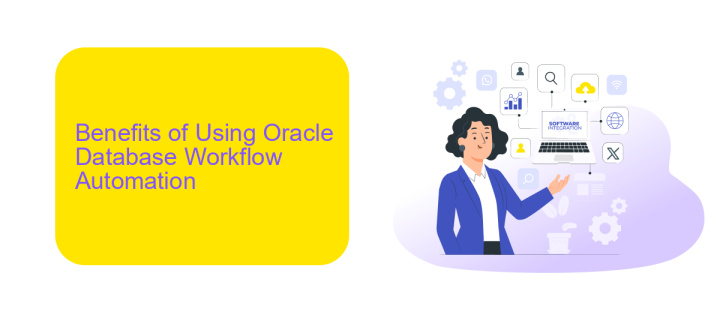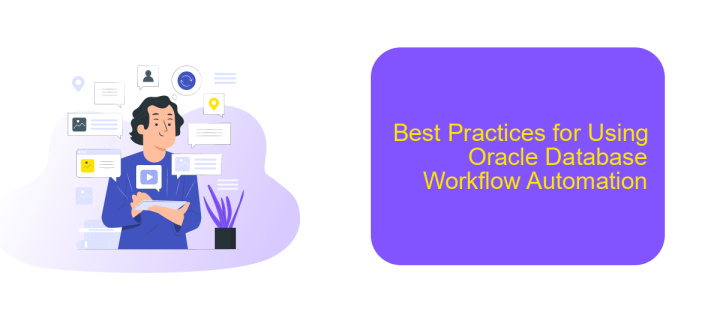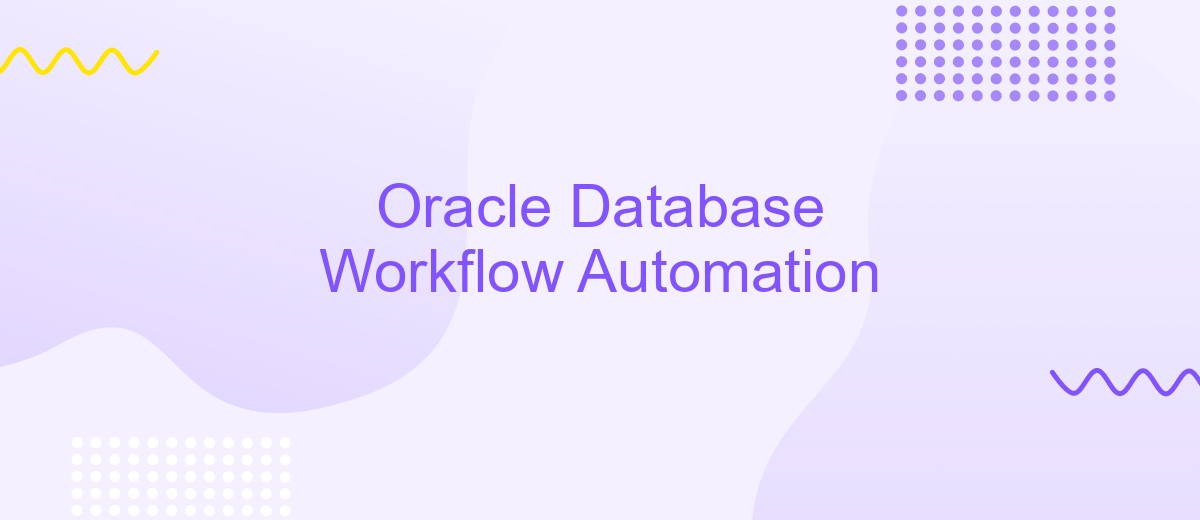Oracle Database Workflow Automation
In today's fast-paced digital landscape, Oracle Database Workflow Automation stands as a cornerstone for optimizing database management processes. By streamlining routine tasks and enhancing efficiency, this powerful tool enables organizations to focus on strategic initiatives rather than manual operations. Discover how Oracle's automation solutions can transform your database workflows, reduce errors, and improve overall productivity.
Introduction to Oracle Database Workflow Automation
Oracle Database Workflow Automation is a powerful tool designed to streamline and optimize database management tasks. By automating repetitive and time-consuming processes, organizations can significantly reduce the risk of human error, improve efficiency, and ensure consistent performance across their database environments.
- Automated data backups and recovery
- Scheduled maintenance and updates
- Performance monitoring and tuning
- Integration with other enterprise systems
One of the key benefits of Oracle Database Workflow Automation is its ability to seamlessly integrate with various third-party services like ApiX-Drive. ApiX-Drive allows users to set up and manage integrations between Oracle Database and other applications effortlessly, enhancing the overall workflow and providing a more cohesive data management experience. By leveraging these automation tools, businesses can focus on strategic initiatives rather than routine database administration tasks.
Benefits of Using Oracle Database Workflow Automation

Implementing Oracle Database Workflow Automation significantly enhances efficiency by streamlining repetitive tasks and reducing the likelihood of human error. Automated workflows ensure that routine operations, such as data backups, updates, and reporting, are performed consistently and accurately. This not only saves time but also allows database administrators to focus on more strategic activities, thereby increasing overall productivity and operational reliability.
Moreover, integrating Oracle Database Workflow Automation with external services like ApiX-Drive can further optimize processes. ApiX-Drive facilitates seamless data transfer and integration between Oracle Database and various applications, enabling real-time data synchronization and enhanced automation capabilities. This integration ensures that all systems within an organization are up-to-date and functioning cohesively, leading to better decision-making and improved business outcomes. By leveraging such integrations, organizations can achieve a higher level of operational efficiency and agility.
How to Implement Oracle Database Workflow Automation

Implementing Oracle Database Workflow Automation involves several key steps to ensure a seamless and efficient process. Start by identifying the specific workflows that need automation, focusing on repetitive and time-consuming tasks.
- Assess and document current workflows.
- Select appropriate automation tools and platforms, such as Oracle's own tools or third-party solutions like ApiX-Drive.
- Integrate these tools with your Oracle Database, ensuring compatibility and seamless data flow.
- Develop and test automated workflows, making adjustments as necessary to optimize performance.
- Monitor and maintain the automated workflows to ensure they continue to operate effectively.
Using services like ApiX-Drive can simplify the integration process by providing pre-built connectors and a user-friendly interface, making it easier to automate data transfers and other tasks. Continuous monitoring and periodic reviews will help in maintaining the efficiency and reliability of your automated workflows.
Best Practices for Using Oracle Database Workflow Automation

When implementing Oracle Database Workflow Automation, it is crucial to follow best practices to ensure efficiency and reliability. Begin by thoroughly planning your workflows, identifying key processes that can be automated to save time and reduce errors.
Next, ensure that your database is well-optimized and maintained. Regularly update your Oracle Database and apply patches to avoid vulnerabilities and performance issues. This will create a stable foundation for your automated workflows.
- Document all workflows and automation processes clearly.
- Use robust error handling and logging mechanisms.
- Test automation scripts in a staging environment before deployment.
- Monitor performance and make adjustments as needed.
- Leverage integration tools like ApiX-Drive for smooth data flow between systems.
Finally, continuously review and refine your workflows. Automation is not a set-it-and-forget-it solution; it requires ongoing attention to ensure it adapts to changing business needs and technological advancements. Regularly solicit feedback from users to identify areas for improvement.
- Automate the work of an online store or landing
- Empower through integration
- Don't spend money on programmers and integrators
- Save time by automating routine tasks
Conclusion
In conclusion, Oracle Database Workflow Automation significantly enhances operational efficiency by streamlining repetitive tasks and reducing the potential for human error. Through the use of advanced automation tools and techniques, organizations can ensure consistent and reliable database management, which leads to improved performance and reduced downtime. This not only saves time and resources but also allows IT teams to focus on more strategic initiatives.
Moreover, integrating services like ApiX-Drive can further optimize the automation process by facilitating seamless integrations with various applications and platforms. ApiX-Drive's user-friendly interface and robust capabilities make it an excellent choice for automating workflows and ensuring smooth data synchronization across systems. By leveraging these technologies, businesses can achieve a higher level of productivity and maintain a competitive edge in today's fast-paced digital landscape.
FAQ
What is Oracle Database Workflow Automation?
How can I start automating workflows in Oracle Database?
What are the benefits of automating Oracle Database workflows?
Can I integrate Oracle Database with other applications for workflow automation?
What are some common tasks that can be automated in Oracle Database?
Do you want to achieve your goals in business, career and life faster and better? Do it with ApiX-Drive – a tool that will remove a significant part of the routine from workflows and free up additional time to achieve your goals. Test the capabilities of Apix-Drive for free – see for yourself the effectiveness of the tool.


